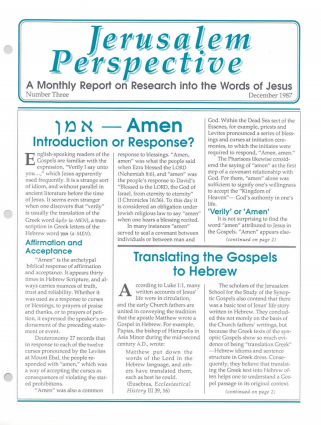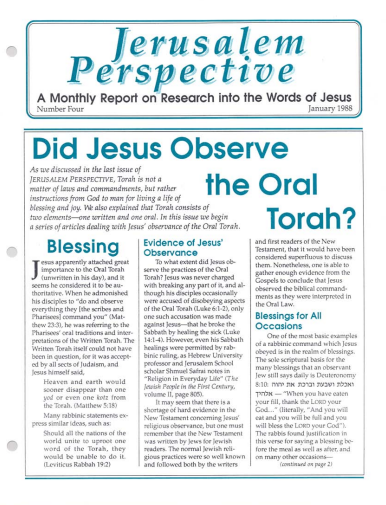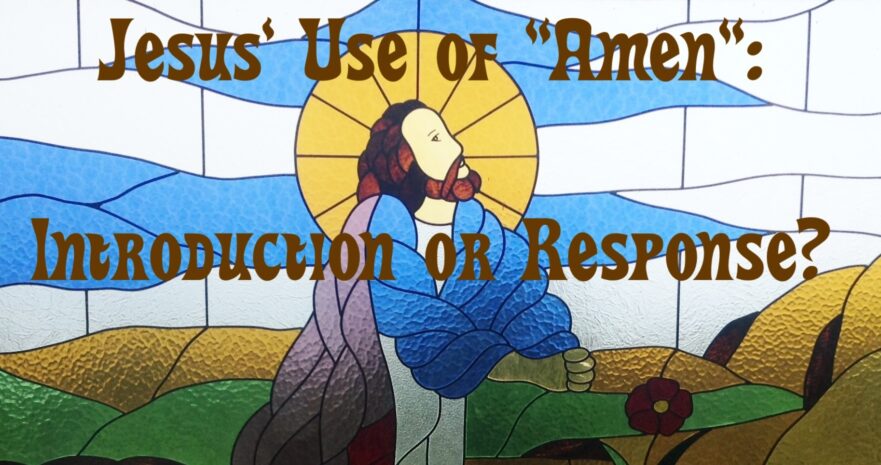English-speaking readers of the Gospels are familiar with the expression, “Verily I say unto you…,” which Jesus apparently used frequently. It is a strange sort of idiom, and without parallel in ancient literature before the time of Jesus. It seems even stranger when one discovers that “verily” is usually the translation of the Greek word ἀμήν (amen), a transcription in Greek letters of the Hebrew word אָמֵן (amen).
Affirmation and Acceptance
“Amen” is the archetypal biblical response of affirmation and acceptance. It appears thirty times in Hebrew Scripture, and always carries nuances of truth, trust and reliability. Whether it was used as a response to curses or blessings, to prayers of praise and thanks, or to prayers of petition, it expressed the speaker’s endorsement of the preceding statement or event.
Deuteronomy 27 records that in response to each of the twelve curses pronounced by the Levites at Mount Ebal, the people responded with “amen,” which was a way of accepting the curses as consequences of violating the stated prohibitions.
“Amen” was also a common response to blessings. “Amen, amen” was what the people said when Ezra blessed the LORD (Nehemiah 8:6), and “amen” was the people’s response to David’s “Blessed is the LORD, the God of Israel, from eternity to eternity” (1 Chron. 16:36). To this day it is considered an obligation under Jewish religious law to say “amen” when one hears a blessing recited.
Premium Members and Friends of JP must be signed in to view this content.
If you are not a Premium Member or Friend, please consider registering. Prices start at $5/month if paid annually, with other options for monthly and quarterly and more: Sign Up For Premium
For more on Jesus’ use of “Amen,” see Robert Lindsey’s JP article “Verily” or “Amen”—What Did Jesus Say?





